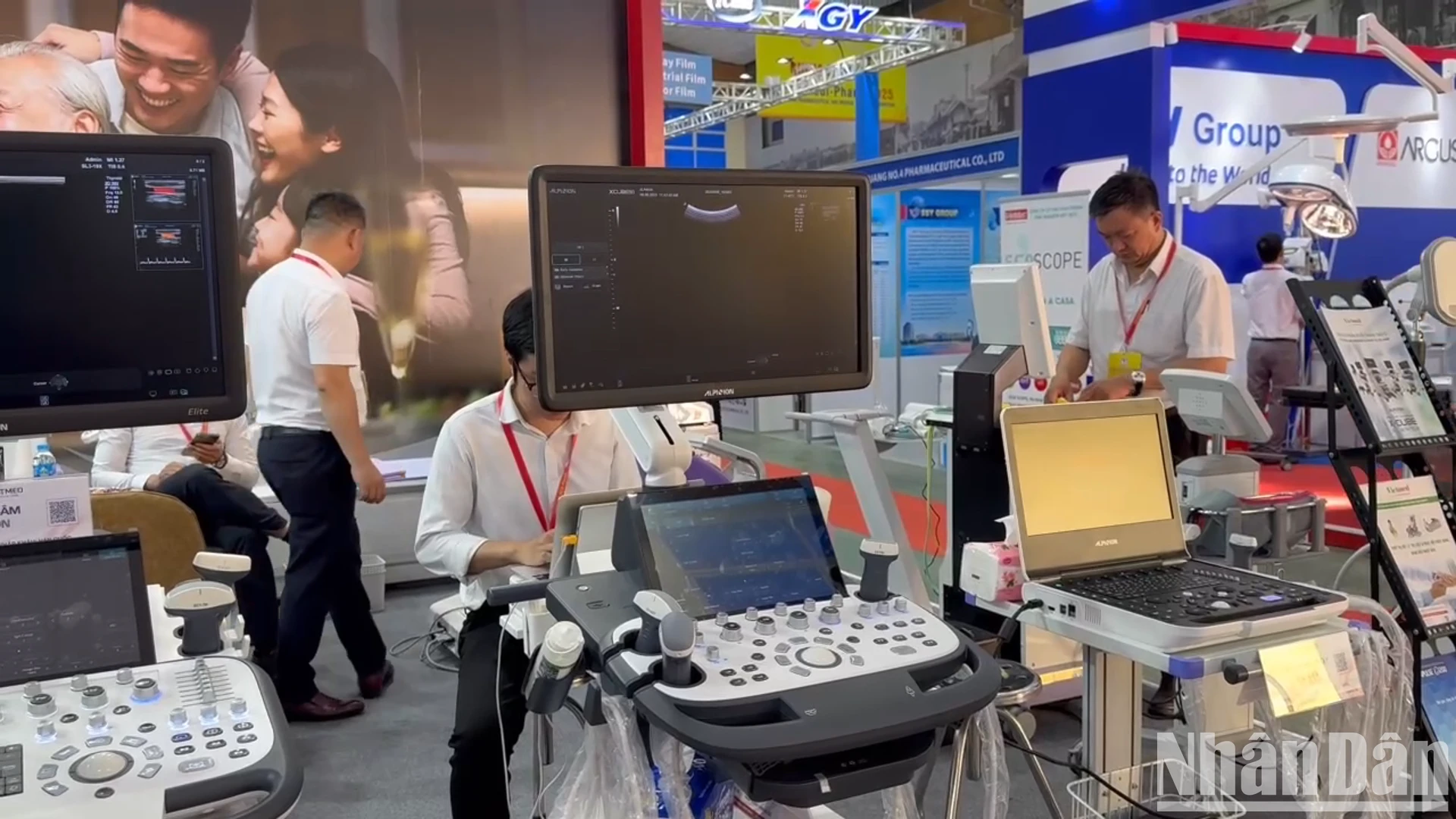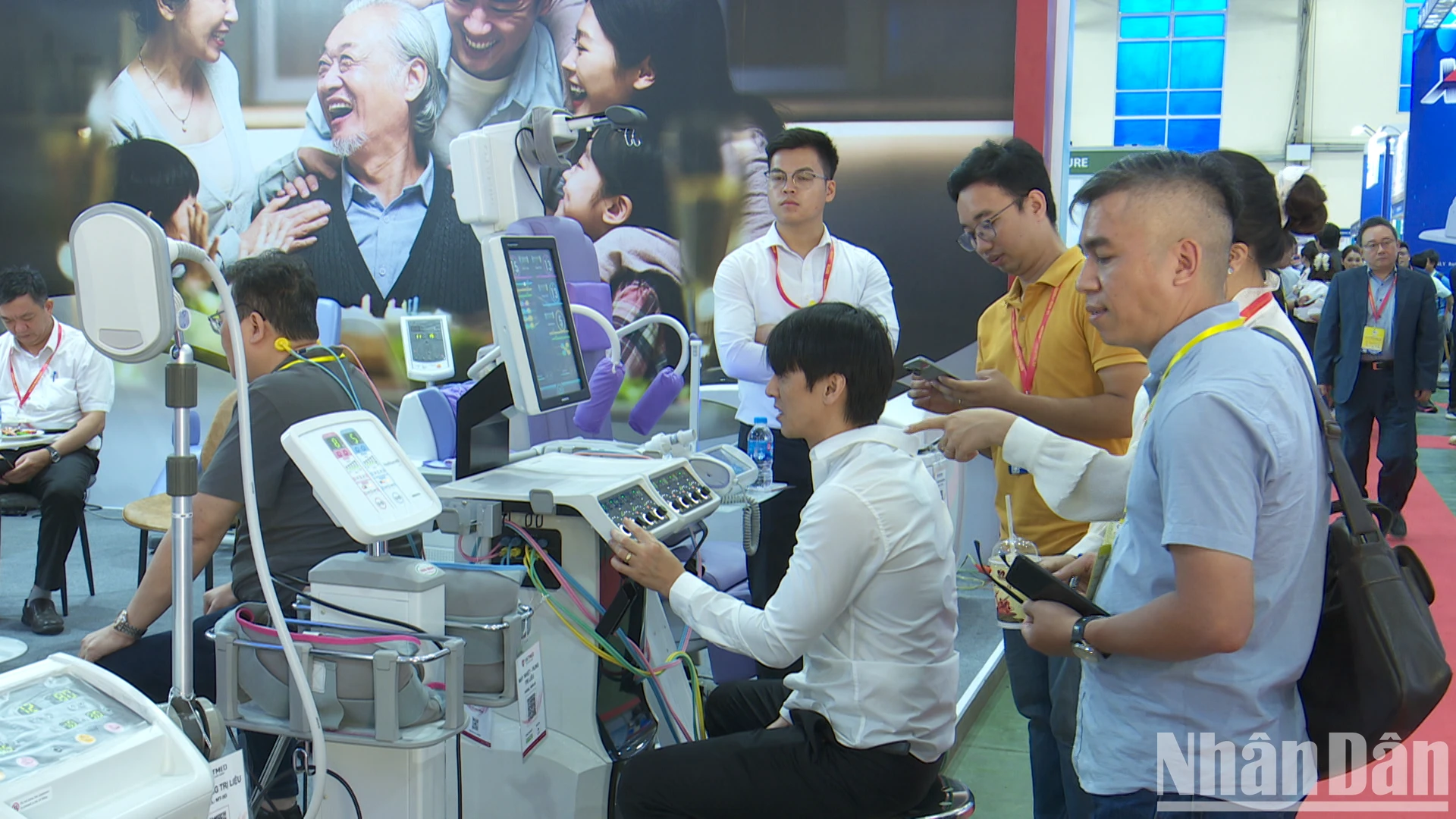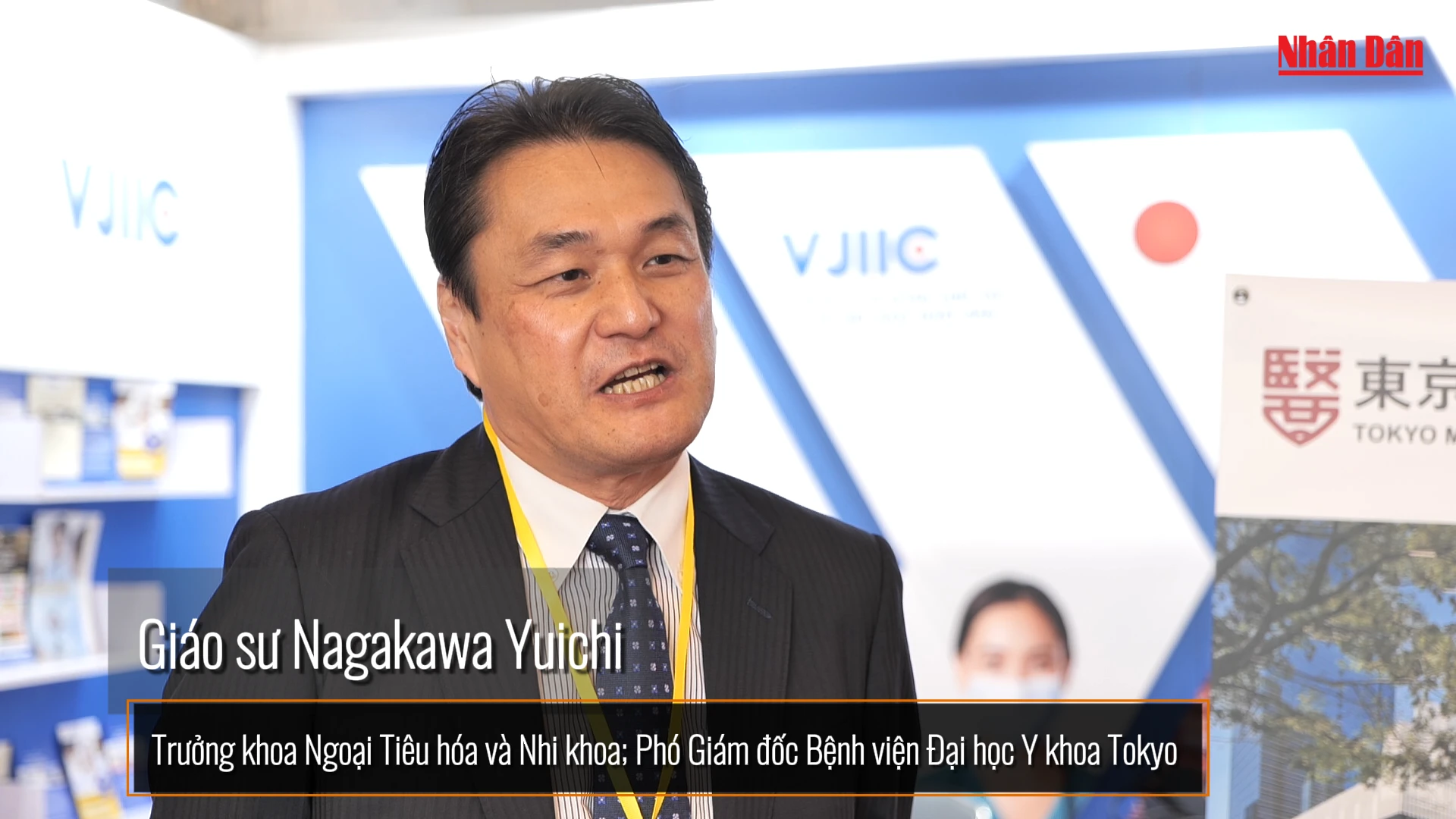The 32nd Vietnam International Medical and Pharmaceutical Exhibition - Vietnam Medi-Pharm 2025 brings together more than 500 booths from 375 businesses from over 30 countries and territories, showcasing products and technologies in the fields of pharmaceuticals, medical equipment, dentistry, smart healthcare, rehabilitation, and medical tourism.
The trend of applying artificial intelligence in healthcare has been clearly demonstrated through the products displayed by many domestic and international businesses.
Potential and trends in smart healthcare.
One of the highlights is the technology of AI-assisted diagnostic imaging. New-generation MRI, CT, and X-ray systems from various manufacturers are integrated with AI algorithms to detect early lesions and suspected abnormalities, assisting doctors in evaluating diseases, tumors, or vascular abnormalities. The acquired images are automatically analyzed in real time, shortening film reading time and minimizing diagnostic errors.
Artificial intelligence is a "race" where the greatest benefits will go to the users.
Ms. Bui Thi Hai Yen, Legal Director of XGY Medical Equipment Company
According to Ms. Bui Thi Hai Yen, Legal Director of XGY Medical Equipment Company, with the increasing trend and demand for healthcare in the market, most suppliers have implemented artificial intelligence applications in diagnostic imaging equipment. This is a "race" where the greatest benefits will go to the users.
For healthcare professionals, the workload will decrease and quality will increase thanks to automated analysis and monitoring of results, avoiding the omission of minor factors. As a result, patients will be assured of quality healthcare and avoid unnecessary risks.
 |
Diagnostic imaging devices are no longer simply tools but are becoming assistants for doctors in treating patients. |
Mr. Vu Van Duong, Deputy Technical Director of Viet Med Medical Company Limited, shared that the application of AI in recent years has deeply penetrated medical examination and treatment activities, helping to improve accuracy, optimize processes, and contribute to building a smarter and more modern healthcare system. As a result, the effectiveness of diagnosis and treatment for patients has been greatly enhanced.
The potential of artificial intelligence in supporting medical diagnosis is clearly enormous, especially in the context of a shortage of doctors in the field of diagnostic imaging in many developing countries like Vietnam.
A relatively new field introduced in Vietnam is smart skincare devices. Companies from South Korea and China are bringing devices that utilize AI to automatically analyze skin conditions. These systems can in-depth identify issues such as skin pigmentation, moisture levels, wrinkles, and pores, and provide personalized treatment suggestions tailored to each user.
 |
Combining digital technology and artificial intelligence (AI) helps improve the effectiveness of diagnosis and treatment. |
Sophie Wang, Head of Sales at Sanhe Sano, shared that checking skin health and detecting abnormalities using smart solutions has been implemented in many countries. AI technology can help provide early warnings of abnormalities, risks of skin cancer or inflammation, and then recommend solutions to users. As a result, skincare becomes more effective, scientific , and accessible.
The combination of digital technology and artificial intelligence (AI) not only helps improve the efficiency of diagnosis and treatment but also supports hospital management, remote health monitoring, and optimizes healthcare costs. This need becomes even more urgent as the population ages, diseases become more complex, and pressure on the healthcare system increases.
Developing smart healthcare through international cooperation.
Current cooperation in developing smart healthcare between developed and developing countries focuses on several key trends. Developed countries share advanced healthcare technologies and train personnel to implement smart healthcare solutions in developing countries.
Professor Nagakawa Yuichi, Head of the Department of Gastrointestinal and Pediatric Surgery and Vice President of Tokyo Medical University Hospital, stated: “We are eager to share advanced surgical techniques with Vietnamese experts, especially those currently being applied at Tokyo Medical University Hospital. These include cutting-edge technologies such as robotic surgery and the latest advancements in cancer treatment.”
 |
“We have observed that Vietnam is making impressive progress, with significant improvements in its healthcare system. We believe that cooperation between Japan and Vietnam in the field of healthcare – through personnel exchange, experience sharing, and research collaboration – will contribute to improving the quality of healthcare services and bring tangible benefits to the people of both countries,” Professor Yuichi Nagakawa shared.
Mr. Do Quang Ba, Chairman of the Vietnam-Japan International Exchange Organization, assessed that through cooperation in treating patients, doctors from both countries will have the opportunity to exchange information, enhance understanding of new advanced techniques between the two nations, and thereby support each other in training, skill development, and technology transfer.
With the rapid development of artificial intelligence, big data, and digital technology, Vietnamese businesses are demonstrating their readiness to participate more deeply in the global healthcare value chain.
Many Vietnamese businesses have proactively invested in smart healthcare and AI applications, not only importing technology but also developing domestic solutions tailored to the country's specific needs. Simultaneously, they are building healthcare models focused on treatment effectiveness and quality of service for patients.
Source: https://nhandan.vn/huong-di-cua-doanh-nghiep-viet-trong-ky-nguyen-y-te-thong-minh-post878659.html







































































































Comment (0)